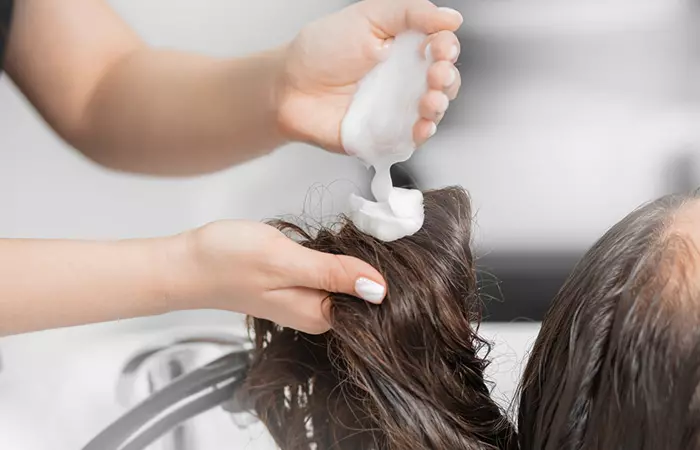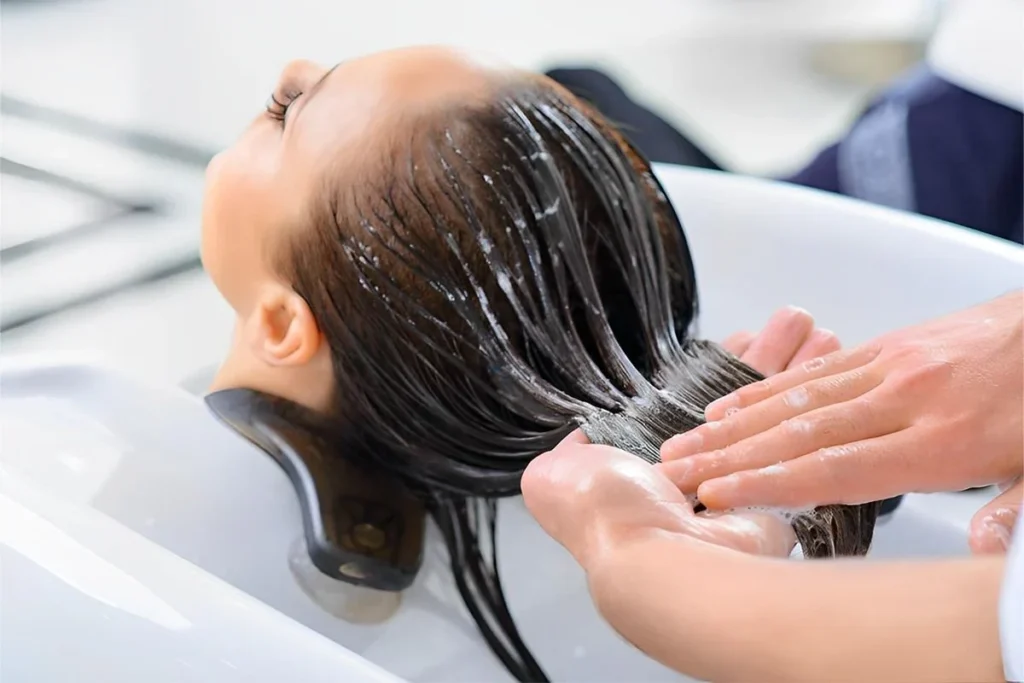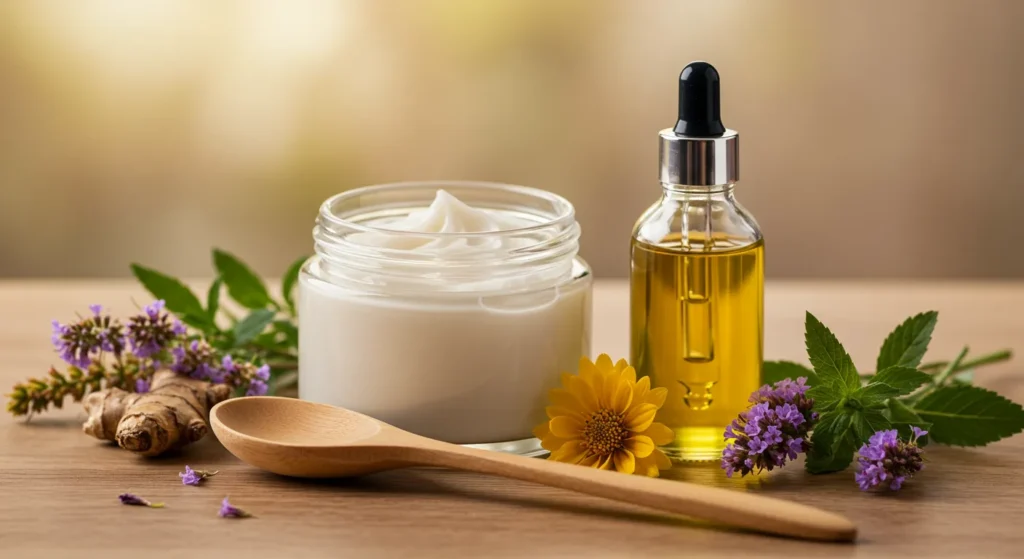If you’re noticing more strands falling out in the shower and asking yourself, “Does conditioner help with hair loss?”—you’re not alone. This common concern affects both men and women, and the answer isn’t always straightforward.
In this article, you’ll discover how conditioner interacts with your hair and scalp, whether it can prevent further hair loss, and how to choose the right one. Backed by expert insights and practical advice, this guide will help you take a confident step toward healthier, fuller-looking hair.
Understanding Hair Loss: Causes and Common Concerns

Hair loss is a complex issue influenced by multiple factors. While genetics plays a major role, other contributors include:
- Hormonal changes (e.g., androgenetic alopecia)
- Stress and poor diet
- Medical conditions like thyroid disorders or iron deficiency
- Hair care habits, including overuse of heat or harsh products
What Triggers Hair Loss?
Hair follicles can shrink or go dormant due to DHT (dihydrotestosterone), inflammation, or nutrient deficiencies. This results in weaker, thinner hair over time.
Can Hair Care Habits Make It Worse?
Yes. Over-washing, aggressive brushing, or using harsh shampoos and conditioners can weaken the hair shaft and lead to breakage or premature shedding.
The Emotional Impact of Thinning Hair
Hair loss can affect confidence, self-image, and emotional well-being. That’s why even small lifestyle changes—like switching your conditioner—can feel significant.
What Is Conditioner and How Does It Work?
Conditioner is a post-wash hair care product designed to moisturize and protect the hair shaft. It smooths the cuticle, reduces tangling, and enhances shine.
Types of Conditioners
- Rinse-out conditioner: The most common type, used after shampooing and rinsed off.
- Leave-in conditioner: Applied after showering and left in the hair for ongoing moisture.
- Deep conditioner or hair mask: Used weekly for intense hydration and repair.
Key Ingredients That Support Scalp & Hair Health
- Biotin: Strengthens hair strands
- Niacinamide: Improves scalp circulation
- Panthenol (Pro-Vitamin B5): Adds shine and hydration
- Caffeine or Saw Palmetto: May help block DHT
How Conditioner Supports the Hair Shaft and Scalp Barrier
By sealing the hair cuticle, conditioner reduces friction and breakage. Some formulas also nourish the scalp, maintaining its natural oil balance, essential for healthy hair growth.
Does Conditioner Help with Hair Loss? What Science and Experts Say
This is the heart of the question. The short answer: Conditioner does not stop genetic hair loss, but it can help reduce hair breakage and scalp irritation, both of which can worsen the appearance of hair thinning.
Can Conditioner Prevent Breakage and Shedding?
Yes. A quality conditioner:
- Reduces mechanical breakage during brushing or styling
- Minimizes split ends
- Protects hair from heat and environmental stress
Does It Stimulate Hair Growth Directly?
No. Conditioner doesn’t penetrate the follicle or affect DHT levels. However, it creates an optimal scalp environment for hair to thrive, which is supportive, especially when combined with other treatments.
Best Types of Conditioners for Hair Loss Prevention

Choosing the right conditioner matters more than many people realize.
Ingredients to Look For
- Biotin fortifies hair strands
- Keratin – helps rebuild damaged cuticles
- Caffeine stimulates the scalp
- Niacin supports blood flow
- Argan Oil – hydrates and nourishes the scalp
Avoid These Harmful Additives
- Sulfates strip natural oils and irritate the scalp
- Parabens – linked to hormonal disruption
- Silicones may clog pores over time
Recommended Conditioners by Hair Specialists
Proper Use of Conditioner for Healthier, Fuller Hair
Using conditioner the right way maximizes its benefits.
How Often Should You Condition?
- Oily hair: 2–3 times per week
- Dry or curly hair: Every time you wash
- Fine or thinning hair: Use lightweight or volumizing formulas
Step-by-Step Guide to Applying Conditioner Effectively
- Shampoo and rinse thoroughly.
- Apply conditioner from mid-length to ends (avoid scalp unless it’s a scalp-specific product).
- Leave for 2–3 minutes.
- Rinse with cool water to seal the cuticle.
Common Mistakes That Can Worsen Hair Issues
- Applying to the scalp unnecessarily
- Leaving conditioner in for too long or not long enough
- Using too much product, which weighs hair down
Conditioner vs. Other Hair Loss Treatments
Conditioner is a supportive treatment, not a standalone solution for hair loss.
Compared to Topical Treatments
- Minoxidil: FDA-approved, stimulates follicles
- Serums: May contain peptides and growth factors
- Conditioner: Maintains scalp and hair shaft health
Where Conditioner Fits in a Hair Regrowth Routine
Think of it as your daily support system alongside targeted treatments like PRP, medication, or transplant recovery.
Is It Enough On Its Own?
Not for advanced hair loss. But in the early stages, conditioner helps protect hair and complements other solutions.
Expert Tips for Supporting Hair Growth Holistically
Hair care isn’t just about products—it’s a lifestyle.
Diet, Supplements, and Lifestyle
- Eat protein-rich foods (eggs, fish, legumes)
- Take supplements like zinc, iron, and biotin
- Reduce stress through meditation or exercise
Scalp Care and Massage
- Weekly scalp massages improve circulation
- Consider using scalp serums after conditioner
When to See a Trichologist or Hair Specialist
If you notice:
- Sudden or patchy hair loss
- Scalp inflammation or flaking
- No improvement with OTC products
Does Conditioner Make a Noticeable Difference?
Yes, especially when:
- Combined with a mild shampoo
- Used with a balanced diet
- Paired with a low-stress hair care routine

Frequently Asked Questions (FAQs)
Can conditioner cause hair fall if not rinsed properly?
Yes, product buildup can clog follicles. Rinse thoroughly.
Should I use conditioner every day?
Not necessary. Use 2–4 times per week depending on hair type.
What’s the best conditioner for thinning hair?
Lightweight formulas with biotin, keratin, or caffeine are ideal.
Can conditioner clog hair follicles?
Heavy silicones may. Look for non-comedogenic, sulfate-free products.
Is there a difference between men’s and women’s conditioners for hair loss?
Generally, no. Focus on ingredients, not gender labeling.
Does Conditioner Truly Help with Hair Loss?
While conditioner won’t regrow hair, it plays a key role in keeping existing hair healthy and reducing breakage. For those facing early thinning or post-transplant recovery, it’s a valuable part of a holistic routine.
But if you’re noticing significant hair loss, conditioner alone won’t be enough. In such cases, consult a specialist for a personalized treatment plan.
Book a Consultation with a Hair Specialist in Islamabad
If you’re dealing with persistent hair thinning, don’t rely on products alone.
Book a consultation with Dr. Rana Irfan, ABHRS/ISHRS-certified hair restoration expert in Islamabad. Get a personalized diagnosis and treatment strategy tailored to your unique scalp and hair needs
